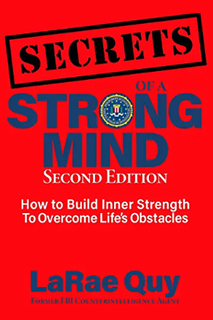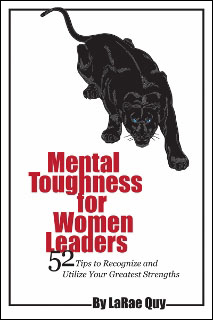The self-help industry is a booming business. It’s made celebrities out of people with minor talent but a major understanding of how to capitalize on the problems of others. God knows from under which rock some of these people come, but their good fortune is the product of a growing interest in personal development.
Reader beware, however, because most of the hack advice out there is bloated puffs of nothing. Trite words of inspiration at best, and a shallow path to healing at worst.
Typical well-being articles and books are not able to help you deal with the root of your anxiety, fear, or lack of self-confidence. Why? Because this is hard work that must be done by you. It’s like placing a bandaid on cancer—it can keep the rot underneath hidden for some time. However, if what is festering is not healed, you’ll end up an old person eaten up with anger because you didn’t evolve into the person you wanted to become in life.
Well-being is about becoming a better person, learning from our failures, and growing from our experiences.
Here is the most common well-being advice that doesn’t work:
1. Develop Good Morning Habits
We’ve learned by the third grade how to get ourselves up and around in the morning. The only thing this advice does is make us feel bad that we can’t keep heaping up more “good morning habits” that will magically change our life.
I can’t tell you how many articles I’ve seen about the morning habits of rich and successful people like Richard Branson, Bill Gates, and Steve Jobs. Each article assures the reader that they, too, will live a changed life if they follow the same rituals. We are told that the way we start our morning sets the tone for the day. Each article is highlighted by an image of a person with a serene and peaceful look on their face.
Gag. They’re serene and peaceful because they received a big modeling paycheck.
It’s not that a morning ritual isn’t important, but there are things in life called “emergencies” where we need to answer a phone call, handle a child’s crisis, clean up after the dog—life happens and we have to set priorities and make choices.
How To Make It Work For You: Seek a lifestyle where you are excited to get out of bed in the morning. Whether it’s your job, your family, or the backyard project, start your day with a reminder of what is important. For many, it’s a time of prayer or meditation. Others like to journal or exercise. The point is, don’t add another routine into those already packed few hours unless it will genuinely feed the lifestyle and values that are important to you.
2. Digital Detox
Seriously? As if we don’t already know that we spend too much time in front of a computer and smartphone. Technology has fundamentally changed how we communicate. It functions as an everyday essential for tasks both at home and in the workplace.
Turning off our digital devices is apt to create more stress because they are a tether to so many important aspects of our life. The idea of surrendering our devices and going cold turkey is naive.
The problem isn’t the technology; it’s the way we let it control our life. We don’t need to “detox.” What we need to do is set boundaries around the way we use our technology. We need to be the ones in control, not our technology.
How To Make It Work For You: Since the word “detox” has such a negative connotation, focus on detaching for short periods. Even short breaks can help. The American Academy of Ophthalmology explains humans normally blink around 15 times each minute. When staring at a screen, this number decreases to a half or third of that frequency. That can lead to dry, irritated, and tired eyes.
Use the 20-20-20 rule. For every 20 minutes spent using a screen, try to look away at something that is 20 feet away from you for a total of 20 seconds.
3. Deep Breaths
This is my favorite piece of bad advice. As if a deep breath will give me a sense of well-being! Listen, I’m a big fan of deep breathing when entering a period of meditation or prayer because deep breaths can kick our nervous into a relaxation mode. If you’ve got the time for 60 minutes of yoga, deep breathing is essential, but I cringe when I read a self-help article that extolls the virtue of stopping for a moment and taking a deep breath when you feel stressed or anxious.
People who find themselves stressed in the middle of a busy day are reading the article and looking for advice because they are concerned about their well-being. They deserve answers that are steeped in science, not psycho-babble.
Let’s establish one thing: taking a deep breath can be relaxing in the right circumstances. Science tells us, however, that the real reason we need to stop and take a deep breath in the middle of a busy day when we feel stressed or anxious is for another reason.
Our emotional drama-queen brain is quicker than our slower-moving thinking brain. The limbic brain system houses our emotions and kick- starts into action when we’re stressed. It can hijack our logical thinking process and drive us into panic mode as we try to find a solution. The real reason a deep breath is a smart move is that it gives the slower thinking brain time to catch up with the faster emotional brain. It’s a stalling mechanism so we’re less likely to do something stupid or spit out an emotional outburst that we’ll regret later on.
How To Make It Work For You: Understand that your emotional brain will not respond with words or worksheets. Empathy is the only language it understands. The thinking brain is often embarrassed by the emotions stirred up—anger, jealousy, greed, envy, etc. So, until you honestly acknowledge what you’re feeling, the two brains won’t agree on anything.
4. Declutter Your Workspace
I”m underwhelmed by the prescribed steps that promise to declutter our desk, and magically, organize our minds at the same time. Here are a few examples:
- Put everything back in its place
- Clean and dust
- Make labels
- Invest in storage options
- Keep it up
The wise ones who hand out these platitudes are intellectual minimalists—clean lines, neutral colors, and no clutter to remind us that real people live there.
Yes, slobs indeed allow piles of junk to cover important items. But, most successful people have learned by now that just because a desk looks “cluttered,” it doesn’t mean it’s not organized.
It’s akin to the adage, “Need something done right away? Give it to a busy person.” Efficient people have things at their fingertips. They know which pile contains which file or document.
How To Make It Work For You: Only you know whether your desk is a source of stress and anxiety. You organize it the way it feels right for you, not Marie Condo.
© 2021 LaRae Quy. All rights reserved.
You can follow me on Twitter, Facebook, Instagram, AND LinkedIn
Are you mentally tough? Here is my FREE Mental Toughness Assessment
Check out my new online training program at www.SecretsOfAStrongMind.com
Get my new book, “Secrets of a Strong Mind (second edition): How To Build Inner Strength To Overcome Life’s Obstacles”
Author of “Mental Toughness for Women Leaders: 52 Tips To Recognize and Utilize Your Greatest Strengths”






Very poignant post LaRae with all terrific suggestions! Since I am such a people person, I have found that to get a hold of my well-being it can be helpful to connect with colleagues or friends. Just taking a few minutes for a catch-up chat or a venting chat can really put us into a better, more productive headset. The key is probably finding some action that can soothe our minds so we can move forward to our next challenge.
Thanks!